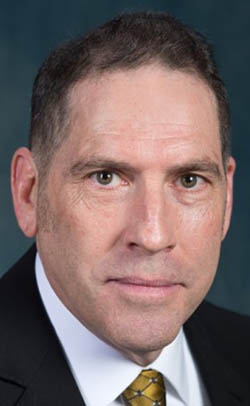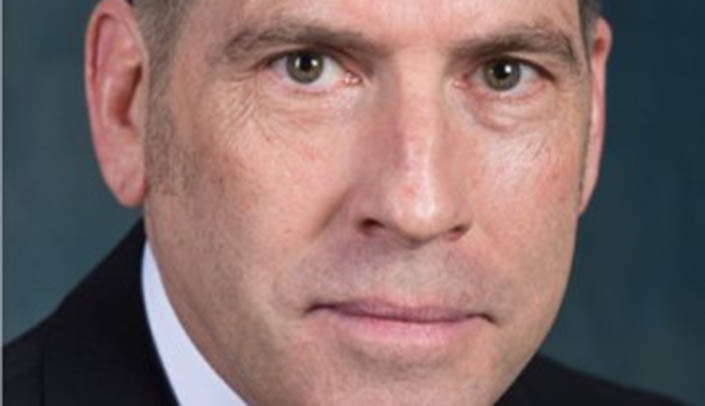 |
Matthew Andrews, Ph.D. |
Dr. Andrews is currently executive associate dean of the College of Science at Oregon State University in Corvallis. A molecular biologist, Dr. Andrews also is a tenured professor of biochemistry and biophysics.
He will begin his Nebraska duties on July 1, succeeding F. Fred Choobineh, Ph.D., who is returning to his faculty position full-time on June 30. As Nebraska EPSCoR director, Dr. Andrews will lead coordination and administration of statewide efforts to earn projects from federal agencies like the National Science Foundation. He will also lead Nebraska’s Institutional Development Award (IDeA) program.
“Matt Andrews is an accomplished scientist and administrator,” Dr. Fritz said. “His record reflects significant collaborations across disciplines and institutions, as well as engagement with industry. He is an excellent fit for this important statewide position.”
Created by Congress in 1979, EPSCoR aims to strengthen STEM (science, technology, engineering and math) research and education capacity and infrastructure in states that have historically received a disproportionately low amount of federal research dollars. IDeA is a similar program established by the National Institutes of Health in 1991 for biomedical fields.
Nebraska EPSCoR engages universities and colleges across the state in competing for merit-based federal funding and fostering STEM public-private partnerships. The program contributes to workforce development through educational and research opportunities for students and early-career faculty. Nebraska EPSCoR is housed on the University of Nebraska-Lincoln campus and is guided by a statewide committee representing higher education, state government and private industry.
Since its formation in 1991, Nebraska EPSCoR has helped garner more than $400 million in federal funding for the state. For example, UNL is leading a current research effort to improve crop productivity funded by a five-year, $20 million EPSCoR grant; the project also involves scientists from UNMC, University of Nebraska at Kearney and Doane University.
“Dr. Matt Andrews provides a wealth of experience that will help foster university-industrial partnerships and develop collaborative opportunities across Nebraska’s higher education institutions,” said state committee chair Jon Anderson, Ph.D., director of research and development at Nebraska’s LI-COR Biosciences. “He truly wants to strengthen Nebraska, from enhancing research competitiveness to increasing Nebraska’s K-12 scientific literacy through STEM education and outreach programs.”
Dr. Andrews said he was attracted to the Nebraska EPSCoR position because of its statewide, multi-institutional impact.
“I’m honored to be selected as the next EPSCoR director for Nebraska,” he said. “I look forward to working with leaders throughout the state to advance Nebraska through research and workforce development. I am also eager to promote STEM education, including Nebraska EPSCoR’s Young Nebraska Scientists programs aimed at middle school and high school students.”
